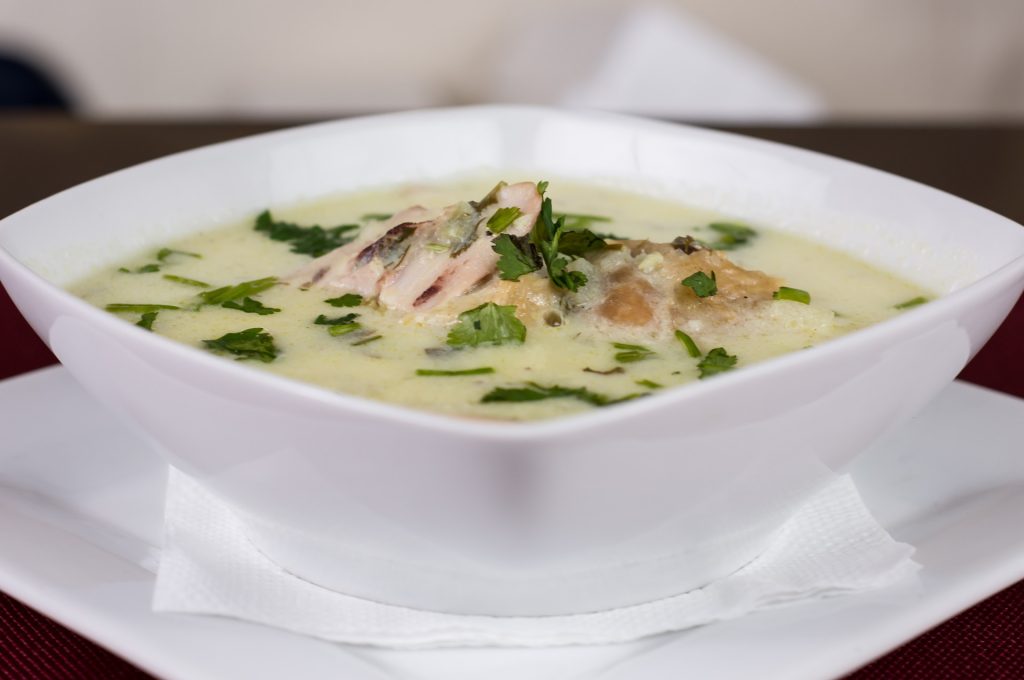 Many folk remedies have been identified and investigated for their ability to protect from the development, or decrease the severity and duration of the symptoms, of the common cold. Chicken soup is often referred to as Jewish penicillin because of its perceived ability to treat upper respiratory tract infections such as the common cold. The anecdotal evidence that chicken soup can treat upper respiratory tract infections is well documents, but scientific studies investigating the effects of chicken soup are less common. However, there is good scientific evidence suggesting that chicken soup could potentially be beneficial at treating upper respiratory tract and other infections, and a number of mechanisms have been described. One possible mechanism may relate to the ability of chicken soup to increase the flow of nasal mucus. Increasing nasal mucus would have an overall decongestant effect and this could decrease the severity of the symptoms felt by the individual.
Many folk remedies have been identified and investigated for their ability to protect from the development, or decrease the severity and duration of the symptoms, of the common cold. Chicken soup is often referred to as Jewish penicillin because of its perceived ability to treat upper respiratory tract infections such as the common cold. The anecdotal evidence that chicken soup can treat upper respiratory tract infections is well documents, but scientific studies investigating the effects of chicken soup are less common. However, there is good scientific evidence suggesting that chicken soup could potentially be beneficial at treating upper respiratory tract and other infections, and a number of mechanisms have been described. One possible mechanism may relate to the ability of chicken soup to increase the flow of nasal mucus. Increasing nasal mucus would have an overall decongestant effect and this could decrease the severity of the symptoms felt by the individual.
In this regard, researchers have compared the effects of hot water, cold water and chicken soup on the nasal mucus velocity of healthy individuals. Both hot water and chicken soup increase nasal mucus flow compared to cold water, suggesting that the heated component was important. The authors concluded that drinking hot liquids was important in this regard. However, the researchers also tested the chicken soup consumption by normal sipping or by consumption through a straw. In this regard, consumption through a straw was less effective at increasing nasal mucus flow compared to normal consumption. Therefore there may be an aromatic or taste property of chicken soup required for the increase in nasal mucus flow, that is not transferred to the consumer through the use of a straw. A component of the beneficial effects of chicken soup against upper respiratory tract infections may therefore come from the physical process of consuming the hot soup, and in part this may relate to the taste and aroma of the soup.

Chicken soup may be able to reduce the symptoms of the common cold. This may occur through the aromatic and taste properties of the hot soup increasing nasal mucus flow. In addition, chicken soup may be able to protect against the development of a common cold because of the high glutamine content of the soup. Glutamine is utilised at a fast rate by cells of the immune system, and during times of infection there is an increased requirement of the immune cells, particularly lymphocytes (white blood cells) for glutamine. Without adequate glutamine, the lymphocytes are unable to proliferate optimally. Also macrophage phagocytosis is also inhibited by a shortage of glutamine. Studies show that increasing glutamine availability improves the resistance of animals to bacterial infection. Low blood glutamine concentrations significantly increases the risk of immunosuppression.
However, there are other mechanisms by which chicken soup may be beneficial against the common cold and other respiratory tract infections. For example, studies have investigated the amino acid profile of various meats and shown that storage of the meat results in a breakdown of the protein, and an increase in the production of shorter peptides and free amino acids. This breakdown of the protein not only changes the taste of the meat, as free amino acids have a strong taste component, but also may alter the immunological properties of the meat. Chicken naturally has more free glutamine in its flesh compared to pork and beef. Glutamine is an amino acid associated with improving immunity. When chick is stored, as might occur in the production of soup, the glutamine content increases further (from about 1.3 μmol per gram meat to about 1.8 μmol per gram meat. The possibility therefore exists that changes to the free amino acid content of the chicken in soup is able to confer protection against the common cold.
Eat Well, Stay Healthy, Protect Yourself
RdB
